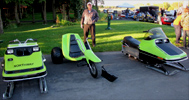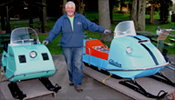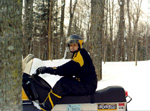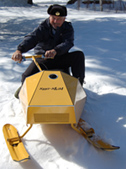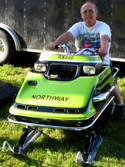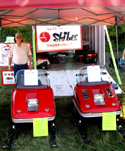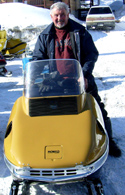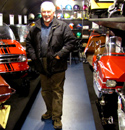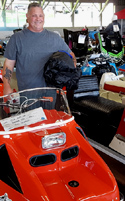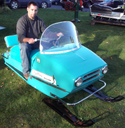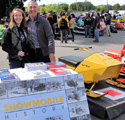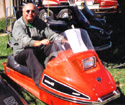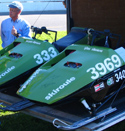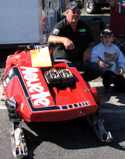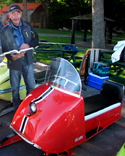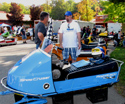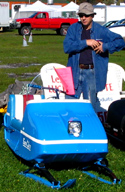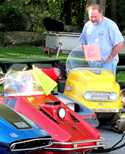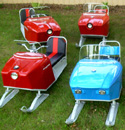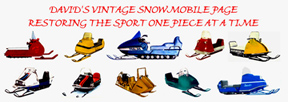
DAVID'S VINTAGE
SNOWMOBILE PAGE.
RESTORING THE
SPORT ONE PIECE AT A TIME.

TODAY
(MARCH
15, 2025) IS
THE
23RD
ANNIVERSARY OF
DAVID'S
VINTAGE SNOWMOBILE PAGE !
IN THESE
HARD TIMES,
I'VE
LOST A COUPLE OF SPONSORS.
PLEASE... I NEED YOUR HELP.
PLEASE
MAKE A DONATION TO SUPPORT THIS SITE.
CLICK
ON THE PAYPAL BUTTON TO DONATE.

FEBRUARY
- MARCH 2025
DONATION
DRIVE PAGE 209B
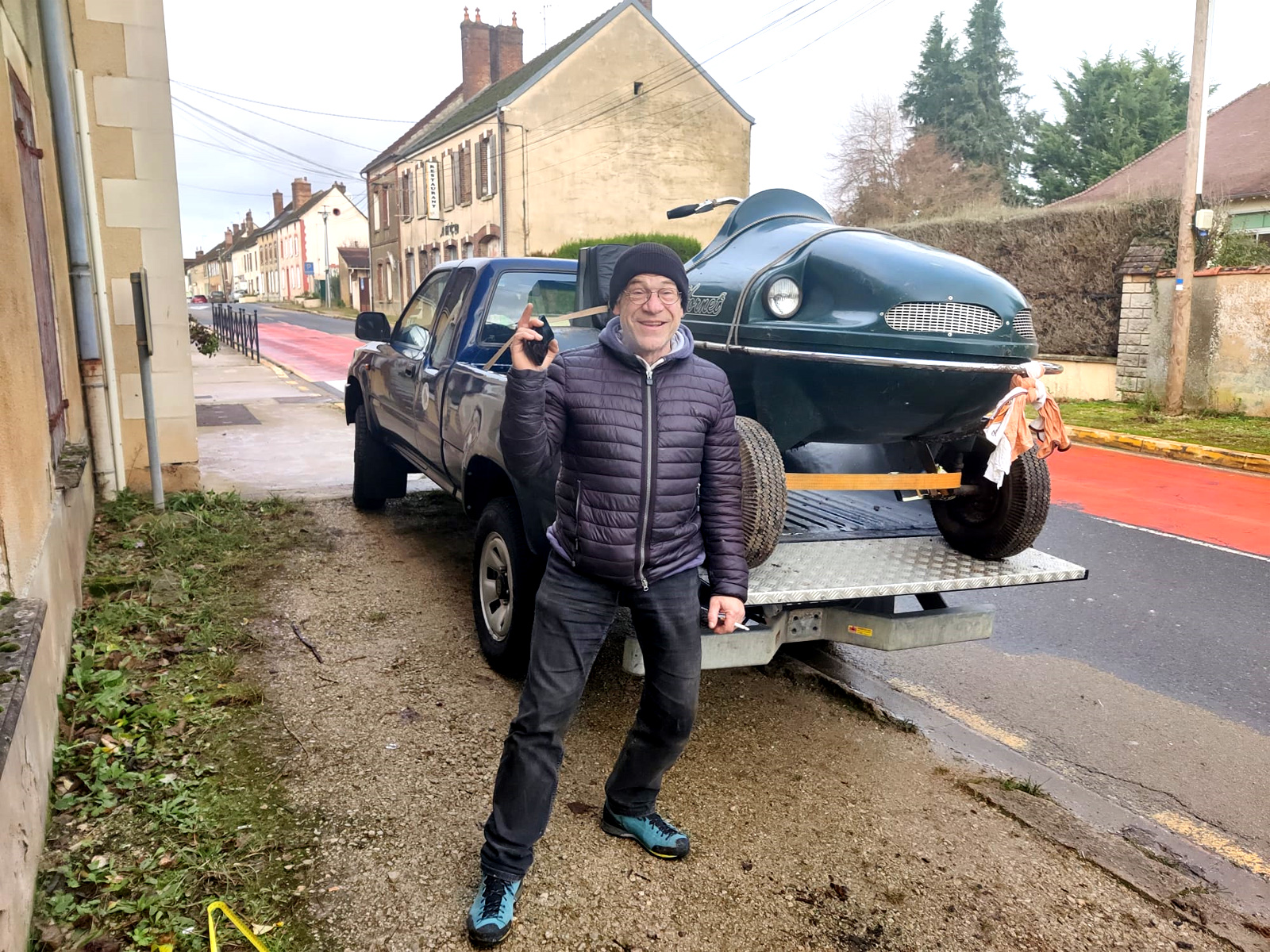
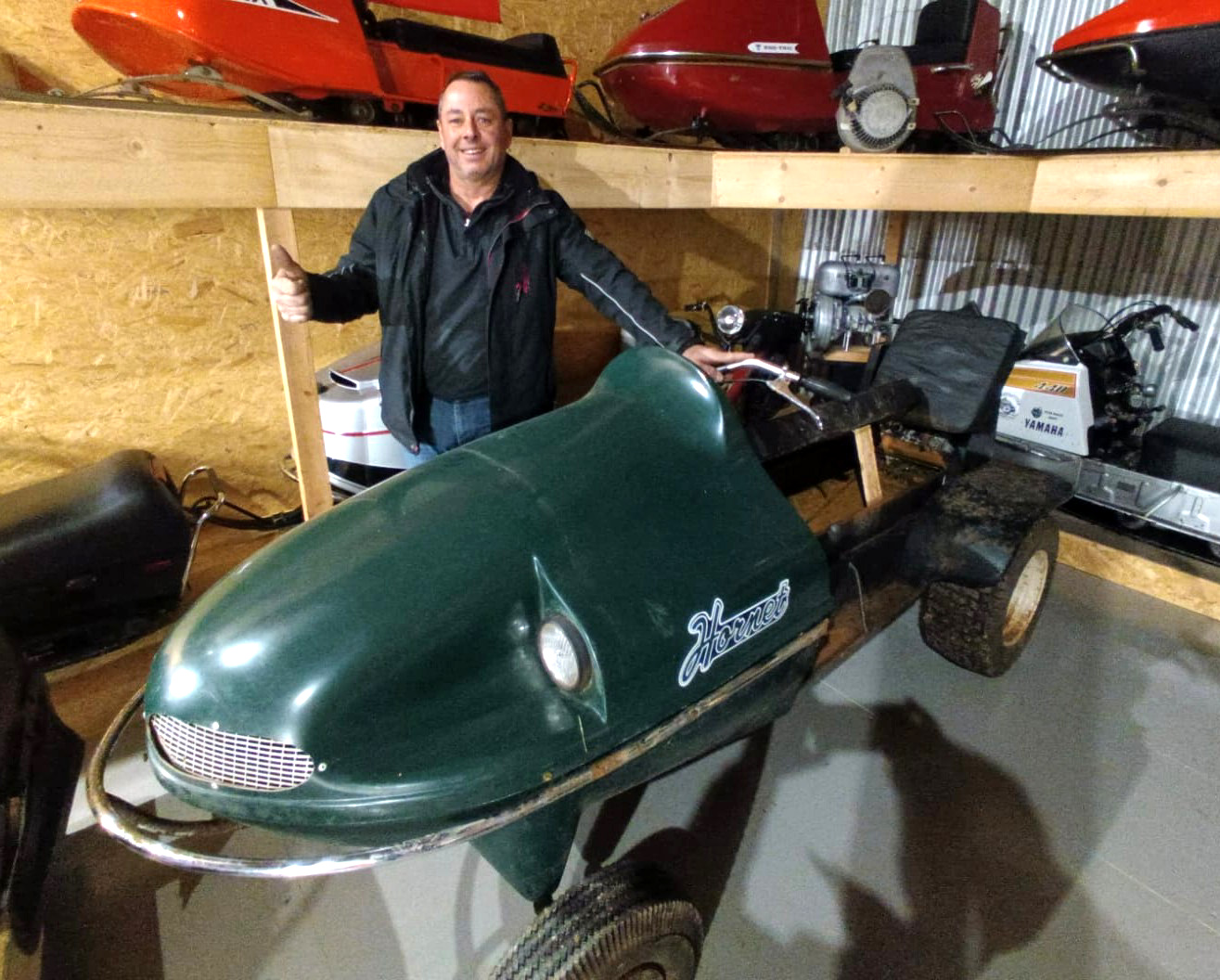
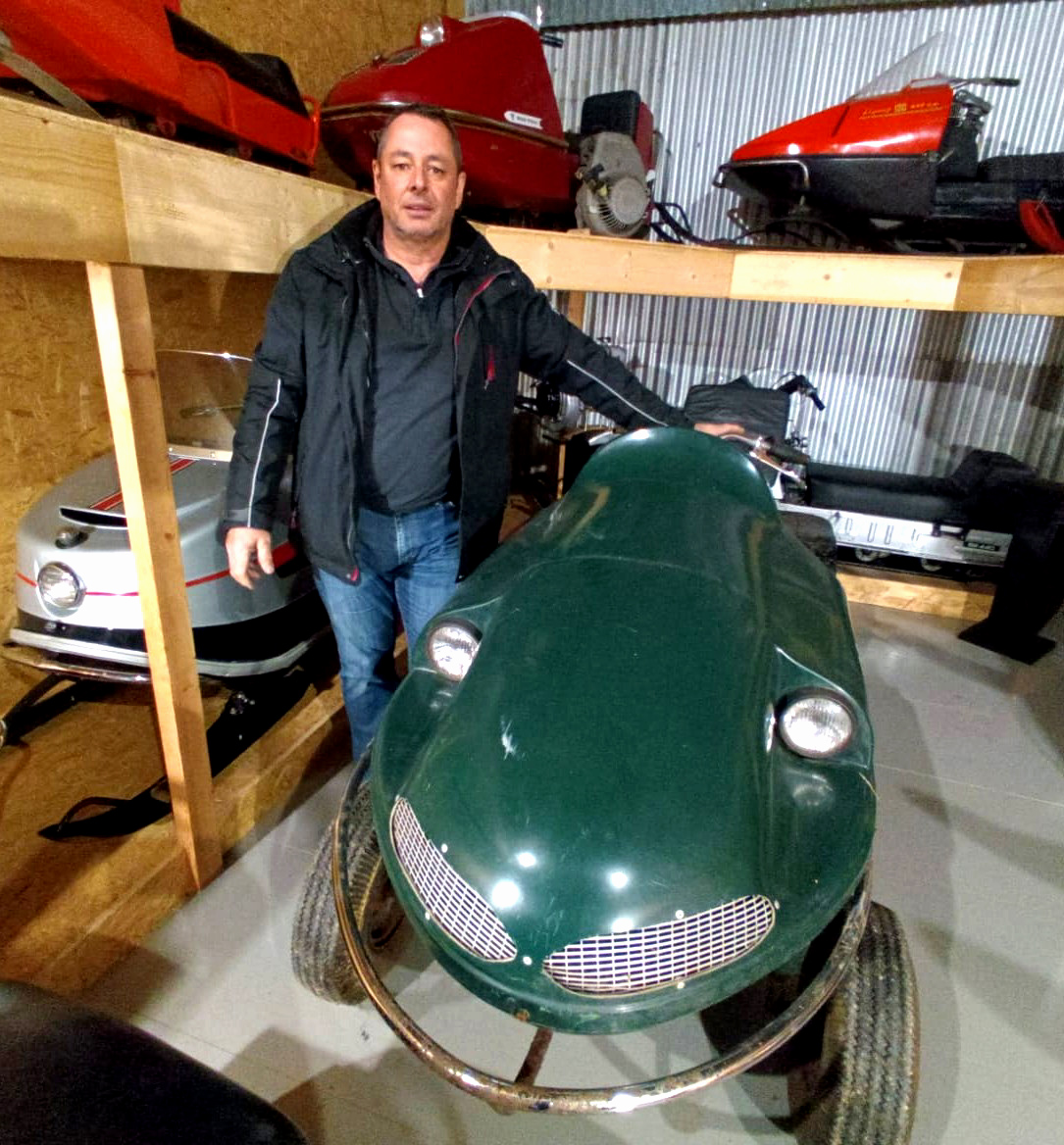

RETO
IS THE THE NEW OWNER OF A JET DYNAMICS HORNET SNOWMOBILE FOUND
IN FRANCE.
NOW
RESTING IN RETO'S VINTAGE SNOWMOBILE MUSEUM.
TOP
PICTURE IS WHEN THE HORNET WAS FRANCE.
RETO
WITH HORNET IN HIS SNOWMOBILE MUSEUM.
Hi David. Here is the story
about the museum.
The
only snowmobile museum in Switzerland is now complete.
From
the idea to the planning and realization, about 3 years have passed with
some interruptions.
In
about 10 years, 30 snowmobiles have been collected, restored and the barn
rebuilt over a period of 3 years.
Most
of the sleds were saved from the scrapyard and restored to their original
condition with great effort.
Thanks
to David, Aaron, Germain and many others for your support over the years.
Reto
HERE IS THE STORY ABOUT THE
HORNET......
I
WAS CONTACTED BY PATRICK IN FRANCE WITH THE FOLLOWING EMAIL.
Hi David, I am writing to
you because I have found in an abandoned barn in a remote part of France
a Hornet snowmobile,
without
windshield and skis. I will try to find them. Not sure to be successful.
It looks like a 1969 or 1970 model.
If
we want to sell it, do you know people in Europe who could be interested
in buying it? Regards. Patrick
I PUT PATRICK IN TOUCH WITH
RETO AND THE DEAL WAS MADE.
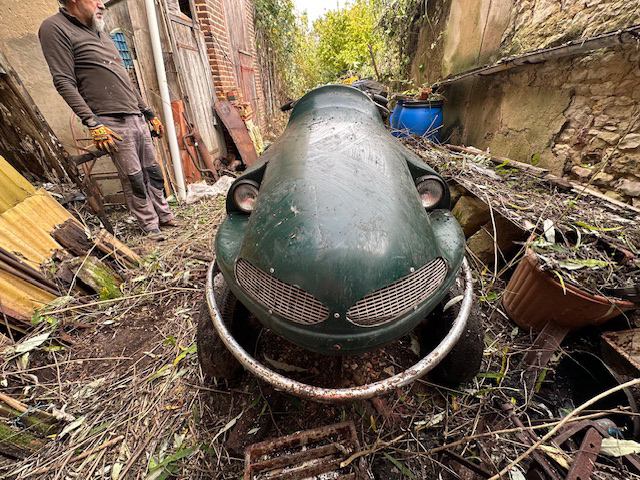
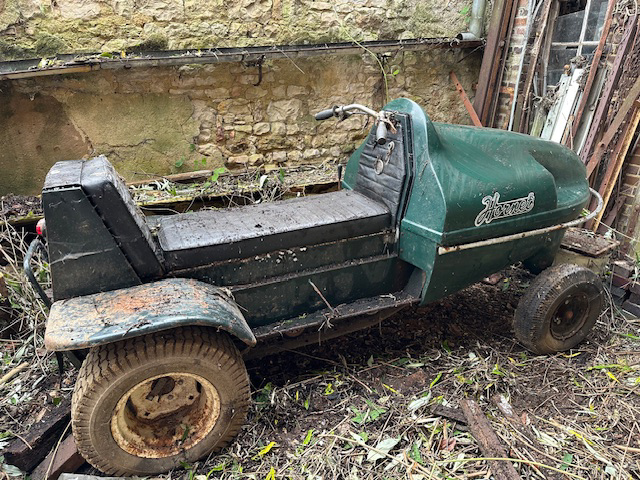
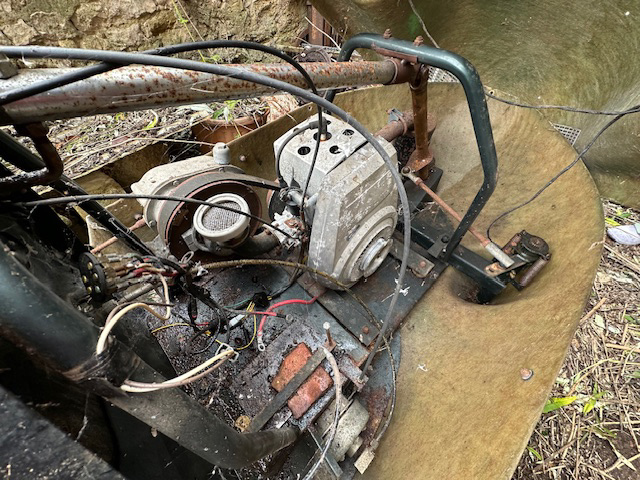

RETO
SENT ME THE FOLLOWING INFORMATION.....
1969
Hornet snowmobile
AmSnow.com
is now SnoWest.com
In
1969 snowmobile manufacturers were starting up everywhere.
Sales
were rising fast,with 278,000 snowmobiles being made in 1969 alone.
Most
snowmobile makers were setting up dealerships, only requiring the dealers
to purchase three sleds and a
minimal
spare parts package. It seemed like you could always find a friend or relative
who wanted to buy a snowmobile,
so
dealerships sprung up everywhere.
This
was a market that stirred creativity and encouraged many small manufacturers
to jump in
with
their latest creation. That's why sleds like the unique Hornet saw the
light of day.
It
has wheels!
I
first saw a Hornet while attending a vintage snowmobile show. Its owner
was John Pearson out of central Minnesota.
Realizing
it was a manufactured snowmobile, I was fascinated and wanted to find out
more about its history.
----------------------------------------------------------------------------------------------------------------------------------------------------------------------------
You
can learn a lot from talking to other owners at these shows and I picked
the brains of Kevin Lahse, Kevin Albers and TJ Henriksen.
Both
Lahse and Henriksen own Hornets. They said about 20 were built, with one
being shipped overseas to see if there was a
market
for a sled like this. Apparently European riders were not ready yet, and
that's not surprising because in a lot of
ways
the Hornet was way ahead of its time.
Of
the 20 Hornets built, it appears there are about 7 or 8 still around, which
is an amazing percentage for such a rare sled.
----------------------------------------------------------------------------------------------------------------------------------------------------------------------------
The
Hornet was built in St. Cloud, Minn., by a company called Jet Dynamics
Inc., and listed for $1,295.
This
was the firm's first model and Jet was trying to do something different
than the numerous other manufacturers.
It
was selling the snowmobile with a wheel kit, for year-round use.
Hornet
snowmobile literature says you could switch from snow to wheels in less
that 6 minutes and then back again when the snow flies.
Hornet
made it possible to scale a mountain with greenery at the bottom and snow
at the top, the literature claims.
Or,
it says you could take the Hornet to the beach or a backwoods fishing spot
that was inaccessible until now.
It
was an all-in-one do-everything sled and off-road vehicle.
Putting
miles on during the summer sounds great, doesn't it?
The sled
Hornet
featured a rear suspension with outboard rear shocks and a transmission
with two forward speeds, and reverse.
This
was a different type of transmission setup, the unit being made by Apex
Gear Co. and hung on top of the chaincase,
which
also was built by Apex.
Not
unusual for the time, the engine was a fan-cooled single-cylinder German-made
JLO 297cc creating 18 horsepower at 5,000 rpm.However, it also featured
electric start with no regular starter recoil, a unique feature.
The
brakes also were unique in that they were located on the front driveshaft,
opposite the chaincase.
The
brake unit here consisted of a small brake drum with small brake shoes
inside.
This
was no lightweight sled. Hornet was a long, heavy snowmobile with an overall
length, with skis, of 9 feet 3 inches.
It
weighed in more like a modern-day sled too, at about 490 lbs.
But
remember, it also had wheels. And here's where you see some of the good
ideas that went into the Hornet.
When
changing over from the snow setup to wheels the front steering arms had
springs holding the wheels in place.
And
those wheels came with L-shaped spindles to slip right into where the ski
spindles normally were located.
Additionally,
the rear suspension's rear shaft is splined on both sides so the wheel
hubs would slip right on.
A
long bolt holds the wheels on. Simple!
When
running with the wheels setup, the track, which was a 15-inch wide rubber
number, would run just like it would on snow.
Plus
there is a kit with a set of rear fenders that fasten onto the rear of
the tunnel.
Hornet
also had a dual-face speedometer that would properly measure your speed
when you changed over to the wheel kit.
Jet
called the sled's steering a high torque universal system with the steering
column going over
the
motor to a universal joint, then down to the sled's tie rod ends.
The
Hornet's fuel tank held 5 gallons, with gas consumption rated at 2/3 gal.
per hour, giving this plenty of
riding
distance before needing a fill-up. Speed was estimated at 40 mph with skis,
and about 48 mph with its wheels in place.
Who
knows, there may be a few more Hornets out there somewhere.
Two
of the Hornets that were found had very few miles on them, one at 111 and
the other at 320 miles. So keep your eyes open.
THANKS
RETO FOR THE GREAT PICTURES !
